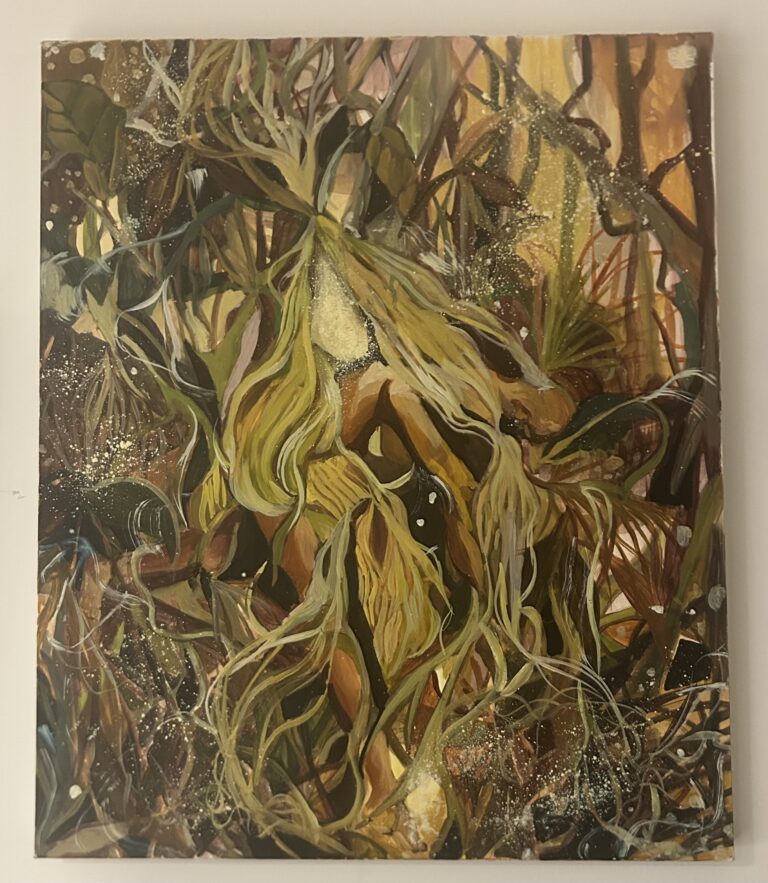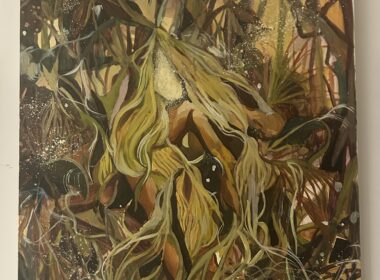Above:Black Kirby, Future Perfekt 2 – Cloud, Digital archival print on paper, 18 x 24 inches, courtesy of the Artist.
The Patricia and Phillip Frost Art Museum FIU recently launched its spring programming, celebrating topics that include Afrofuturism and the concept of cyclical time.
Transfiguration: A Black Speculative Vision of Freedom
Since the debut of Marvel’s Black Panther (2018), the focus on Afrofuturism in the United States has skyrocketed. Mark Dery, American author, lecturer and cultural critic, defined the term in 1994 in an attempt to understand why African Americans did not engage with science fiction. Dery’s assertion that Black people have “other stories to tell about culture, technology, and things to come” can be seen in the vibrant visual culture linked to Black speculative art.
Afrofuturism embraces utopic spaces where equality is valued and realized. According to Reynaldo Anderson, founder of Black Speculative Arts Movement, this aesthetic practice integrates Afrodiasporic and African metaphysics with science or technology and seeks to interpret, engage, design, or alter reality for the re-imagination of the past, the contested present, and act as a catalyst for the future.
Curated by Julian C. Chambliss, English professor, Michigan State University, “Transfiguration: A Black Speculative Vision of Freedom,” spotlights how visual narrative at the heart of Afrofuturist practice is part of a longer Black speculative tradition. Black speculative thought, with significant roots in 19th-century literature, works against anti-Blackness and imagines a space devoid of colonial frameworks and systemic racism. “Transfiguration,” on view Friday Jan. 22, 2021 – Sunday, Apr. 25, 2021, takes up the Rev. Martin Luther King Jr.’s observation that Black visions of freedom strive for a better future. The contemporary artists featured in this exhibition engage with the theme central to King’s legacy, offering visions of freedom across genre and circumstance.
“Afrofuturism has global impact. Although it is currently a popular state of inquiry, its historic threads and international implications are manifold. This exhibition brings together a group of artists informed by comics, graphic design, artist’s books and graphic novels, to inspire further investigation and understanding of Black speculative thought,” said Amy Galpin, chief curator, Frost Art Museum.
The exhibition is part of the Martin Luther King Jr. Exhibition Series, which addresses issues of race, diversity, social justice, civil rights, and humanity to serve as a catalyst for dialogue and to enrich the community with new perspectives. To learn more about FIU’s Annual Rev. Dr. Martin Luther King, Jr. Commemorative Celebration please click here.










